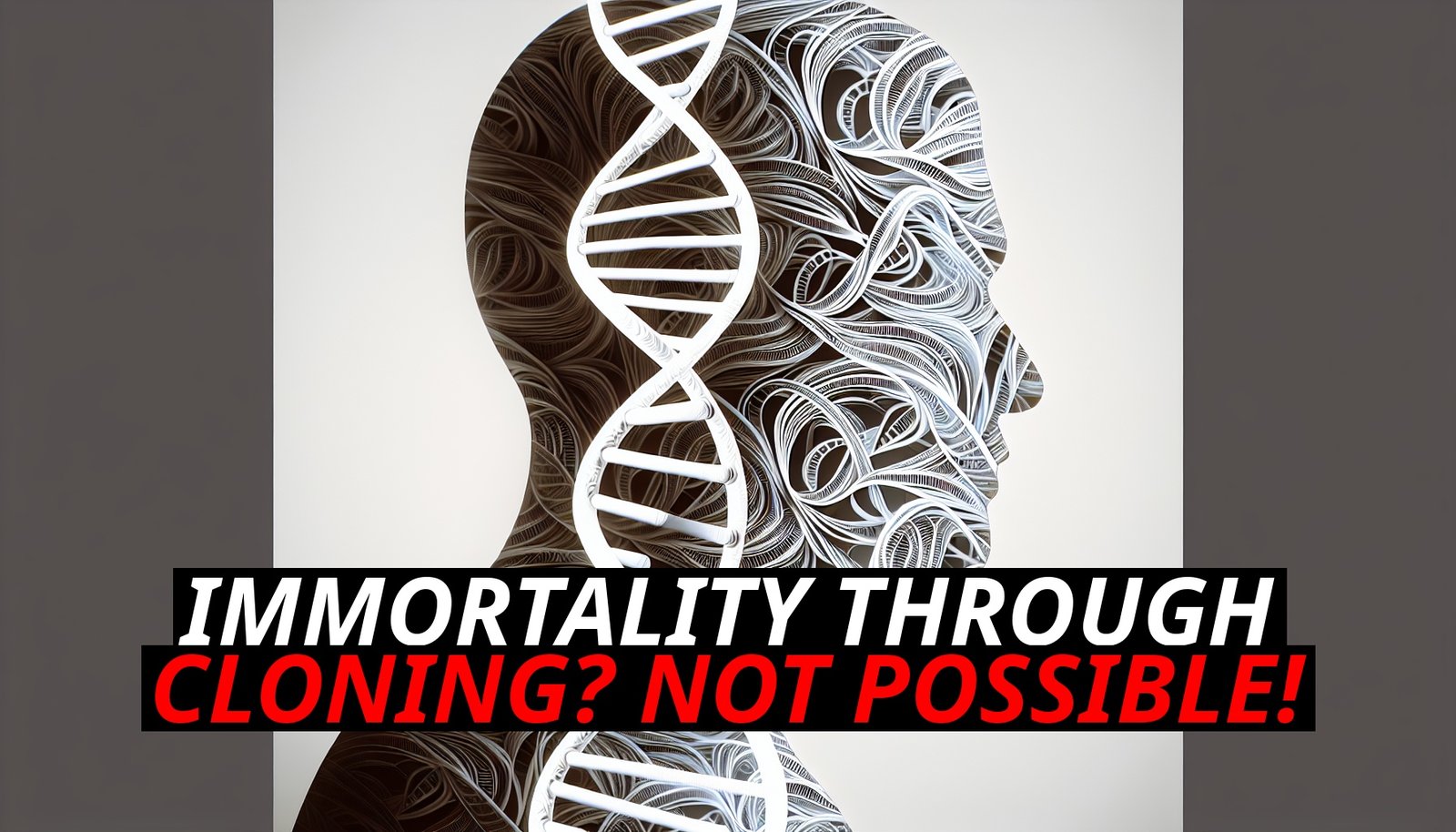Imagine standing on the precipice of death, knowing that everything you’ve built, everything you are, will soon come to an end. The fear of this moment is universal—an inescapable part of the human experience. But what if there were a way to sidestep death, to continue living through a perfect replica of yourself? This tantalizing possibility is at the heart of cloning, a concept that promises to defy the finality of death. But why are we so drawn to this idea? What is it about cloning that speaks to our deepest fears and desires? Let’s delve into the complex relationship between cloning and the fear of death, uncovering the psychological and philosophical underpinnings that drive our fascination with this technology.
The Fear Of Death: A Universal Human Experience
Death is the great unknown—a mystery that every human being must eventually face. It’s no surprise that the fear of death is one of the most powerful and pervasive emotions we experience. This fear isn’t just about the physical act of dying; it’s about the loss of self, the end of consciousness, and the cessation of everything that makes us who we are. It’s about the terrifying realization that life, as we know it, is finite.
For centuries, humans have sought ways to overcome this fear, whether through religion, philosophy, or science. The idea of an afterlife, reincarnation, or spiritual transcendence has provided comfort to many, offering the hope that death isn’t truly the end. But in the modern age, as science and technology advance, we’ve begun to explore more tangible means of defying death—one of which is cloning.
Cloning As A Response To Mortality
Cloning, in its most sophisticated form, offers the promise of continuity—a way to preserve one’s identity and consciousness beyond the grave. The idea is simple yet profound: by creating a clone with the same memories, personality, and traits as the original, a person can, in a sense, live on. The clone becomes a vessel for the continuation of the self, a way to cheat death by ensuring that a version of oneself remains in the world.
This concept speaks directly to our fear of mortality. It provides a solution to the existential dread that accompanies the thought of non-existence. By embracing cloning, we can hold onto the idea that death doesn’t have to be the end—that we can continue to exist in some form, even after our bodies fail. It’s a comforting thought, one that taps into our deepest desire for self-preservation and immortality.
The Illusion Of Continuity
But while cloning may offer the illusion of continuity, it’s important to recognize that this is just that—an illusion. The original person, with all their consciousness and lived experiences, still dies. The clone, despite having the same memories and personality, is a separate entity, a new individual with their own consciousness. This raises a profound philosophical question: Is the clone truly a continuation of the original, or simply a copy?
The fear of death drives us to seek ways to preserve ourselves, but cloning, in its essence, cannot provide true immortality. It can create a replica, a shadow of the original, but it cannot capture the unique essence of the person who has died. This realization forces us to confront the limitations of technology in addressing our fear of mortality. While cloning can extend a version of ourselves, it cannot ultimately save us from the finality of death.
The Ethical Implications Of Cloning
Beyond the philosophical questions, cloning also raises significant ethical concerns. The act of creating a clone for the purpose of continuing one’s life can be seen as a form of self-centeredness—an attempt to place one’s own desire for immortality above the rights and autonomy of the clone. The clone, despite being a replica, is still an individual with their own potential for growth, development, and identity. By imposing the original person’s life onto the clone, we risk infringing on their right to forge their own path.
Moreover, the pursuit of cloning as a means of overcoming death reflects a deeper societal issue: our unwillingness to accept the natural cycle of life and death. In our quest to avoid the inevitable, we may be ignoring the value of life’s impermanence—the idea that it’s the finite nature of life that gives it meaning. By trying to sidestep death through cloning, we may be losing sight of the importance of living fully and authentically within the time we have.
Cloning In Popular Culture: A Reflection Of Our Fears
The fascination with cloning is evident in popular culture, where movies and stories often explore the ethical and psychological implications of this technology. In films like The 6th Day, cloning is portrayed as a double-edged sword—offering the possibility of eternal life, but at a significant cost. These stories reflect our collective anxiety about death and our desire to find ways to escape it. They serve as cautionary tales, reminding us that while technology can offer incredible possibilities, it also raises complex moral questions that we must grapple with.
These narratives force us to consider the consequences of our pursuit of immortality. They challenge us to think about what it means to truly live, and whether the desire to avoid death might lead us down a path that ultimately dehumanizes us.
Conclusion: Embracing Life In The Face Of Mortality
The relationship between cloning and the fear of death is complex and multifaceted. On one hand, cloning offers a tantalizing possibility—a way to preserve ourselves and continue our existence beyond the grave. On the other hand, it raises profound philosophical, ethical, and psychological questions that challenge our understanding of life, identity, and the nature of existence.
As we continue to explore the possibilities of cloning, it’s crucial that we also consider the implications of our pursuit of immortality. While the fear of death is a powerful motivator, it’s important to remember that life’s value lies in its impermanence. By accepting the natural cycle of life and death, we can find meaning in the time we have, living fully and authentically rather than seeking ways to prolong our existence through artificial means. Cloning may offer the illusion of defeating death, but it’s our embrace of life’s fragility that truly allows us to live.













